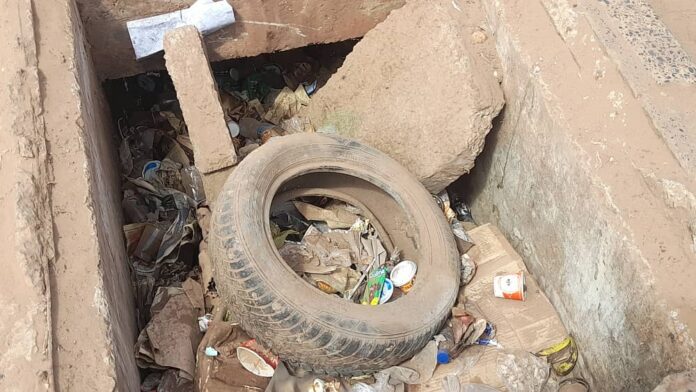By: Adama Sanneh
Numerous reports of littering demonstrate the negative impacts it has on the environment and the health of animals, plants, and humans alike. The most common littered item is plastic, with a UNEP report estimating that 12 billion tons of plastic are expected to accumulate in landfills and natural environments by 2050. The Gambia, being a net importer of plastic, imported an estimated 1.6 million kg of plastic in 2019 alone. On average, 702,000 kg of municipal solid waste is produced daily in the country, according to UNDP The Gambia.
Despite the existence of the Waste Management Bill of 2007 and the Anti-Littering Regulation of 2008, the importation, usage of plastic, and ongoing littering of the environment in The Gambia continue to escalate.
Moreover, the illegal dumping of waste in street gutters exacerbates challenges meant to be addressed by these regulations. This dumping, particularly prevalent in areas such as the Kanifing Municipality and West Coast Region, obstructs the intended flow of water during rainy seasons, leading to flooding.
The increase in illegal dumping in gutters is partly attributed to the limited availability of trash bins along highways. However, it remains a topic of debate whether citizens are taking sufficient responsibility for maintaining a clean environment, and whether authorities are adequately enforcing laws to address this menace.
Dumping in gutters can have severe environmental consequences, contributing to climate change and causing drainage blockages that result in floods.
Lamin F. Badjie, the Deputy Director of Service at KMC, asserts the need for increased awareness and emphasizes that Gambians must take responsibility for maintaining a clean environment. He states, “Every year, the council, through the NRA, cleans all the highways and drainage systems, and removes sand from the roads. We also conduct sensitization campaigns, yet people continue to litter the streets and gutters. Even the areas in front of the council’s offices are littered again just a week after cleaning.” Badjie acknowledges that while it is the responsibility of the NRA to clean highways nationwide, the council collaborates to ensure cleanliness.
The country has laws that criminalize littering, implemented by the central government through the National Environment Agency (NEA). Additionally, the council has its by-laws to fine littering offenders, with fines amounting to D1000 dalasis, while the NEA imposes fines of up to D15,000 dalasis for littering. Badjie highlights ongoing efforts to empower the council to enforce these laws effectively through collaboration with the NEA and involvement of the police.
Reports received by the council indicate that during the rainy season, people dispose of their waste in gutters, causing blockages and subsequent flooding, leading to blame directed at the government and council for their perceived inaction.
To combat this, the council has established a radio station to educate citizens on their responsibilities and the consequences of littering. Badjie urges citizens to recognize that the funds used for municipal services come from their taxes and should not be squandered. He emphasizes, “If the drains are clean, people should avoid littering inside them, as it undermines the efforts of the council and the well-being of the country.”
During a conversation with a vendor in Latrikunda, it was noted that the limited presence of trash bins leads to waste being disposed of in gutters. From market and street vendors to storekeepers along highways, pedestrians, commuters, and drivers, all contribute to the menace of indiscriminate littering.
As the rainy season approaches, concerns about flooding heighten, given the extensive damage caused by previous floods to both lives and properties. Citizens must take responsibility for maintaining a clean environment to foster a healthier and more conducive living environment for all.




